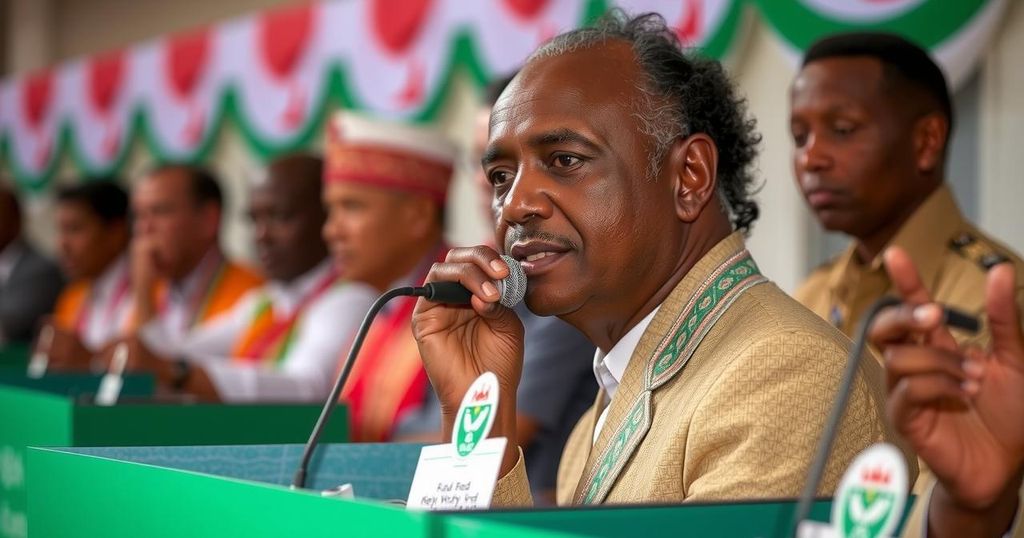Chad’s Parliamentary Elections: A Controversial Step Towards Democracy

Chad holds its first parliamentary elections in over a decade amid opposition boycotts and concerns regarding electoral integrity. The vote is viewed as an attempt to transition to democracy following the death of long-time leader Idriss Deby, but many opposition parties have criticized the elections as illegitimate and politically motivated. Security concerns, economic challenges, and ongoing civil unrest complicate the electoral landscape.
Chad is conducting its first parliamentary elections in over a decade, marking a significant step in the nation’s transition towards democracy amid skepticism from opposition parties. The elections, which include parliamentary, regional, and municipal votes, were delayed due to financial difficulties and the COVID-19 pandemic. These elections are a crucial part of a transition period initiated after the death of long-time president Idriss Deby in 2021, leading to his son, Mahamat Idriss Deby, assuming power.
The government in N’Djamena has asserted that this election will officially conclude a three-year transitional period, although various opposition groups are boycotting the polls, labeling them a “masquerade” and voicing concerns about the legitimacy of the electoral process under the current regime. They argue that the Patriotic Salvation Movement (MPS), which has dominated the political scene since 1991, is attempting to consolidate power further under the guise of a democratic process.
Chad faces numerous security challenges as it conducts these elections, including conflict in Sudan and threats from Boko Haram, which complicate the already tenuous political landscape. Rights advocacy organizations have expressed that the absence of comprehensive opposition participation raises significant doubts regarding the fairness and credibility of the electoral process.
The elections will allow 8.3 million registered voters to select representatives for 188 parliamentary seats. However, many notable opposition parties, such as the Transformers Party led by Succes Masra, have opted out of the elections, arguing that the environment is neither equitable nor conducive to a legitimate electoral process.
Chad has not held parliamentary elections since 2011, as the government consistently postponed them under various pretexts. Although Chad is an oil-producing country, it suffers from persistent economic challenges, underscoring the complexities of conducting successful elections. The tumultuous political environment is further highlighted by allegations of repression during the lead-up to these elections and a disregard for the opposition’s calls for political reforms.
Chadian journalists are also protesting restrictions placed on online media during the election period, which they assert are attempts to silence dissenting voices. Human rights organizations and opposition leaders continue to express concerns regarding inclusivity and the overall integrity of the electoral process. Analysts predict that the MPS will secure the majority needed to maintain its longstanding grip on power as these elections unfold.
Chad has not conducted parliamentary elections since 2011, with previous elections being postponed under the pretext of financial difficulties and the COVID-19 pandemic. Current political dynamics are largely influenced by the transition following the death of Idriss Deby in 2021, during which his son, Mahamat Deby, took power. Opposition parties have historically been suppressed, prompting skepticism regarding the legitimacy of the current electoral process. The ongoing conflict and security issues pose additional challenges to the democratic transition and further complicate the political landscape in Chad.
The elections in Chad represent a critical juncture in the nation’s attempt to establish a democratic framework after many years of military rule and delayed electoral processes. Despite attempts to foster a semblance of democracy, widespread opposition boycotts and claims of repression raise serious concerns about the integrity of the current electoral exercise. The international community, along with local rights organizations, will be watching closely to ensure that the election process is as free and fair as possible and to hold the government accountable for its actions moving forward.
Original Source: www.aljazeera.com






